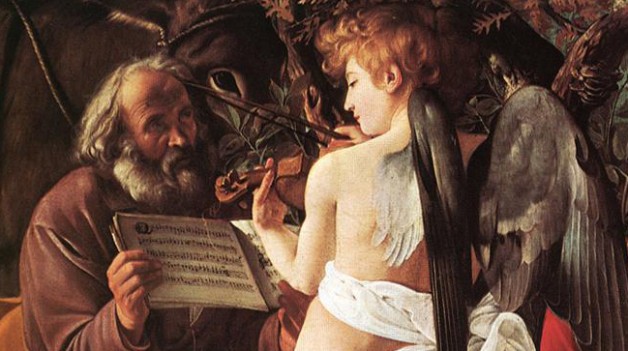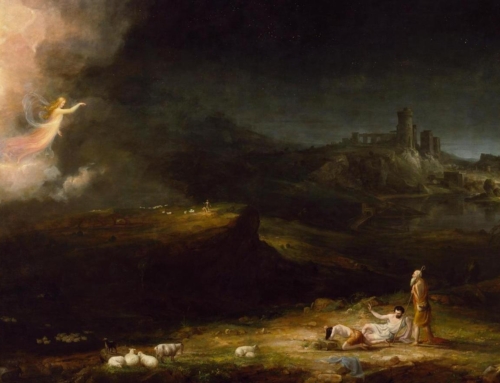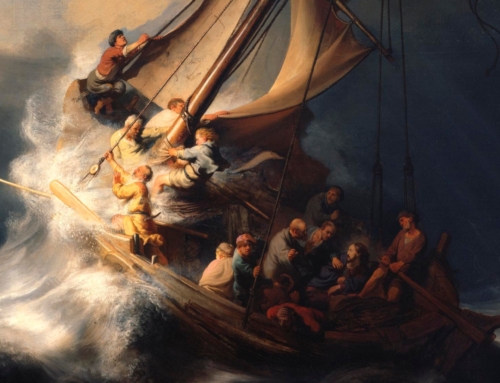During this Advent season, in just about any city in America, you can find a radio station that plays Christmas music non-stop. While most of the tunes that you hear jump the gun on Christmas cheer, a few, like “Silver Bells” or “Santa Claus is Comin’ to Town” do turn the mind to the coming Yuletide festivities. But while these secular pop songs prepare for the celebrations that accompany the feast of the birth of Christ, none of them puts the listener in the proper mood for much more than shopping or traveling. The sentiments of expectation and longing for the much-needed Savior are conspicuously absent from most of the music commonly heard at this time of year.
The most notable exception, however, is Georg Friedrich Handel’s 1742 magnum opus, the Messiah, which is often performed, at least in part, in concert halls, churches, and inter-choral gatherings far and wide throughout Advent. Combining Baroque rhythm and counterpoint with the inspired Word of God, this masterpiece’s popularity has endured for generations. One of the reasons it has is that the oratorio captures the emotions of awe, joy, sorrow, and triumph surrounding the life of Jesus Christ and the destiny of each Christian.
This is true right from the very beginning of the work. In the overture, the strings drive forth, in a jagged, uneven rhythm, the strains of the people of Israel in Old Testament times. Listening to it, we can feel, along with the chosen people, the disappointments of trying to rely on ourselves. How can we be freed from our sins, and reach human fulfillment? How long, O Lord, must we wait for a Savior? The first violin section then begins a fugue, whose recurring subject calls to mind the numerous times that the Israelites have fallen away from God’s covenant. The characters may change as the theme is heard in different related keys, but every time, God calls us back to return to Him—and He does not turn back on His promise.
And we begin to hear this promise’s fulfillment in the next movement. The agitated melody in E minor gives way to a slower, calmer accompaniment in E major. Then the tenor soloist begins the fortieth chapter of the Book of Isaiah—at the point in which the text breaks from a historical narrative of the kingdom of Judah into a series of prophecies for the future Kingdom—“Comfort ye!” In times of stress, doubt, and fear, our Lord offers us consolation. “Speak ye comfortably to Jerusalem, and cry unto her that her warfare is accomplished, that her iniquity is pardoned!” The Messiah, the Lord’s Anointed, comes, as perfect God, to conquer our sins, and as perfect man, to show us how to be fully human. What could comfort us more than this?
The music stops for a moment—and the soloist calls out the words later used by John the Baptist: “The voice of him that crieth in the wilderness: Prepare ye the way of the Lord; make straight in the desert a highway for our God!” This is the theme of Advent: we must order our lives, our actions, our desires, to make a clear path for Christ, so that we can be united with Him when He comes to us—both in the Sacraments and at the threshold of eternity.
By the time the music becomes more lively, as the soloist, and then the full choir, show us what will happen when Jesus does come (“Every valley shall be exalted…and the glory of the Lord shall be revealed”), we should likewise be excited to run toward Him and meet Him, and share in His divine life. This is a joy far greater than any for which pop Christmas music can prepare us. So put on a CD of Handel’s Messiah, or come to a concert, or participate in a sing-along version if you can. Through this music, we can more fully anticipate the coming of our Savior at Christmas, and be prepared to exclaim, before the heavenly throne, in an unceasing chorus, “Hallelujah!”
Image: Caravaggio, Rest on the Flight into Egypt







